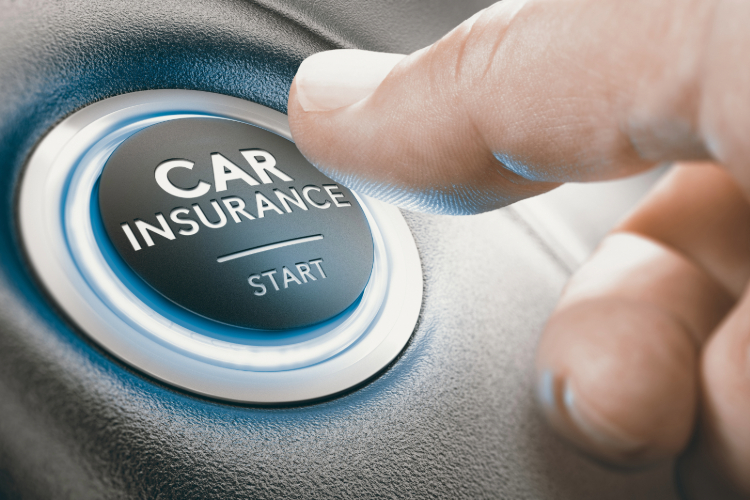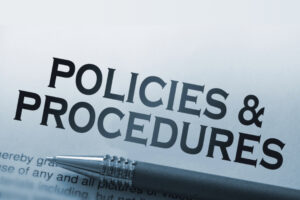An auto insurance policy is a contract between you and an insurance company. You agree to pay a premium for protection, and the insurer agrees that as long as your premium payments are current, the company will pay for covered losses. The policy outlines specifically what is covered and how much you would receive in compensation if you are involved in an accident, your car is stolen or vandalized, or if your car is damaged by some other cause — for example, a rock thrown from the tire of a large truck or a fallen tree.
Exactly what risks are covered and how much you would be compensated depends on the details of your specific policy, the deductible you select, and the limits of compensation you agree to. A deductible is the amount that you’re willing to pay up front before the insurance company pays any expenses when you file a claim. A limit is the maximum amount the insurance company will pay you. In general, the lower the limits and the higher the deductible you choose, the lower your premiums — and your protection — will be.
Policies are usually issued for six-month or one-year timeframes, and premiums can change with each renewal cycle depending on a variety of factors.
What Does Auto Insurance Cover?
Auto insurance coverage depends on what you buy. There are several categories of auto insurance, and different states have different requirements for what kind of coverage drivers must have. Here are the basic types of auto coverage:
- Liability. Fault is an important factor when it comes to auto coverage. If you cause a car accident and therefore are at fault, your property damage liability and bodily injury liability will pay for the other vehicle’s repairs, the medical costs for anyone injured in the other vehicle, and such things as legal fees or other accident-related costs. Liability coverage has limits that are established when you purchase your policy. You must pay for anything above that limit, unless you have an additional insurance policy.
- Collision. If you crash into another vehicle or some object like a telephone pole, collision coverage will pay for damage or repairs to your vehicle after you pay the deductible. For example, if your collision coverage has a $1,000 deductible and the damage to your car costs $2,500, your collision coverage will pay $1,500 after you pay the first $1,000.
- Comprehensive. Sometimes this coverage is called “other than collision.” It will compensate you for damages caused by something other than a traffic accident. For example, if a bear looking for food damages your car, or your car is stolen, you will be reimbursed for some portion of the loss if you have comprehensive coverage. As with collision coverage, you choose a deductible for comprehensive coverage.
- Medical expenses. Regardless of who is at fault, your medical coverage will pay for medical bills to treat any injuries that you or your passengers may experience in a car accident. It also will pay the medical costs for injuries that you or your family members may suffer while passengers in someone else’s car.
What Doesn’t Auto Insurance Cover?
It depends on the policy, but most standard auto insurance policies will not cover:
- Personal belongings stolen from inside a vehicle.
- Drivers who live with you but aren’t listed as drivers of your vehicle on the policy.
- Damages or medical bills not covered by an uninsured or underinsured at-fault party.
- Commercial use of a personal vehicle, such as ridesharing or delivery side-hustles.
- Aftermarket additions, such as a sound system installed in a car after purchase.
- The difference between your car’s value and what’s left on your loan (for that, you need gap coverage).
- Rental car reimbursement for when your car is being repaired or replaced.
- Roadside assistance.
Separate coverages like homeowners or renters, uninsured/underinsured motorist, gap, and roadside assistance can be bundled with or added onto an auto insurance policy for additional premium to cover any of the above.
Why Do I Need Auto Insurance?
Even the best drivers take a significant risk every time they get behind the wheel. Auto insurance provides financial help when you or another motorist make mistakes. If you don’t have insurance, you must pay for damages and injuries yourself.
If you are in a state with no-fault laws, each driver involved in an accident is responsible for their own damages and medical costs. However, if you’re in a state with tort insurance laws and you are at fault in an accident, you are typically liable for the cost of not only your vehicle damage and medical bills, but also the other driver’s and injured victims’ damages and medical costs — as well as the cost of legal fees if you are sued. If the other driver is at fault and is under- or uninsured, they are responsible for your compensation, but chances are they don’t have a lot of assets and you may not be able to recover damages even if you win a lawsuit against them — so the financial risk will ultimately still fall on you.
For the cost of your premium, the insurance company will absorb much of that financial risk for you.
Is Auto Insurance Required?
State requirements vary, but 48 states require some level of coverage, typically for property, liability, and/or medical — at minimum, enough liability insurance to cover any damage or injuries you could cause. If you don’t maintain auto insurance in these states, you can be fined or serve jail time, and your license can be suspended or revoked. Although New Hampshire and Virginia don’t require you to purchase auto insurance, they do require you to prove that you can afford to be without it, and Virginia won’t issue you a license to drive unless you pay an uninsured motorist fee.
How Do I Get Auto Insurance?
You can get excellent coverage designed for your specific needs through your Trusted Choice Independent Insurance Agent®. You also can shop for coverage directly from an auto insurer online, but it can come at the expense of professional expertise and quality customer service.
Your local Trusted Choice agent knows the insurance requirements for your state and can help you find a policy that meets them. Trusted Choice agents also do the work of shopping among many different companies for you, so you can be sure to get reasonable rates and coverage appropriate for your situation.
Not sure what you need? Use the Trusted Choice independent agent matching tool to find a reputable independent agent near you. Just tell us what you’re looking for. Any information you provide will be sent only to the agent you designate.
How Expensive Is Auto Insurance?
Auto insurance is a manageable expense, particularly when you weigh it against the financial risks it protects you from. Rates do vary from state to state and are affected by several factors, such as whether your car is new or used, its safety rating, your driving record, and your age and gender. Because some areas are more prone to accidents and claims than others, even your ZIP code affects your insurance rates.
No matter how bad your driving record is, you almost always can find insurance. But if you have a record that includes tickets, accidents, or points on your license, you may be considered too risky for a company or you may be charged a higher premium to compensate for the greater risk of insuring you.
You can also talk to your agent to determine if you or a driver on your policy qualifies for one of these common discounts:
- Good student discount.
- Good driver discount.
- Multi-car discount.
- Multi-policy discount (meaning you have more than just an auto policy with the insurer, perhaps adding homeowners, renters or umbrella insurance).
Is Auto Insurance Tax Deductible?
While auto insurance policies typically don’t cover commercial use of personal vehicles (such as for ridesharing or delivery side-gigs), you can get a tax deduction if you are self-employed. However, you can deduct only the actual number of miles you drive for business — not the miles you drive for personal reasons.
Why Has My Auto Insurance Premium Changed?
When it’s time to renew your policy, your premium may go up or down (though in most states, costs are currently rising). Some factors that contribute to premium fluctuations include whether or not you filed a claim recently, if there are any incidents on your driving record, if the number of crashes in your area have been increasing, and if the cost of auto repairs or medical care in your area have increased.
Moving to a different city or state can affect your premium. As a general rule, premiums are higher in riskier locations and where there are more uninsured drivers.
Can an Auto Insurance Company Drop You?
You can cancel or void your policy, and your auto insurance company can too in the following circumstances:
- If you fail to pay your premiums.
- If you lie on your application.
- If you lose your driver’s license, temporarily or permanently, because of bad driving behavior.
Insurance companies can cancel policies for additional reasons in some states. A local Trusted Choice independent agent can help you better understand the laws in your state.
Why Was My Auto Insurance Claim Denied?
There are a few reasons why your claim can be denied, including:
- A claim that misrepresents an accident, damage, injury or loss.
- A claim filed for coverage or a loss not included in a policy.
- A claim filed while insurance is suspended for lack of premium payment.
Do Auto Insurance Companies Check Credit?
Your credit score indicates your ability to pay your bills, so auto insurance companies do check credit to determine if you are a good risk.
Does Getting Auto Insurance Quotes Affect Credit?
A credit check for a car insurance quote will not affect your credit rating because insurers are not extending you credit, but simply determining whether you are a good financial risk.
Do Auto Insurance Companies Share Information?
Insurance companies do not share your personal information among themselves. If you file an insurance claim or you are switching insurance companies, information about your claims history is placed into a national loss-underwriting database. That information can be accessed by the insurance companies you want to purchase a policy from.
Remember too that your driving record is public information — including tickets and accidents.
Does Auto Insurance Cover Rental Cars?
When you rent a car, you will most likely be offered special coverage at the rental counter. Do you need it?
Most auto insurance policies cover you whether you’re driving your own car or a rental — unless you’re renting the car for business use. If you’re not sure what your own policy covers, ask your Trusted Choice agent.
Can I Get Auto Insurance with a Suspended License?
Most insurance companies won’t insure a driver whose license is suspended or revoked. You may be able to work with your local DMV to get a hardship license. Many states require high-risk drivers to file an SR-22 (or FR-44) form, which certifies that you have met your state’s requirements for car insurance. Your Trusted Choice agent can help you file an SR-22 form.







